
All of Europe has undergone radical change in the last 30 years as a result of three major upheavals: firstly, liberation and the end of division as a result of the fall of the Iron Curtain; secondly, digitalisation and thirdly, globalisation. We are currently all battling with the complex consequences of this new realm of …

Digitalisation in healthcare also throws some central ethical issues into confusion. Medical ethics, with their insistence on patient autonomy, come up against information ethics, which are to do with moral aspects of using new information and communication technologies. How can e-health function in this context?
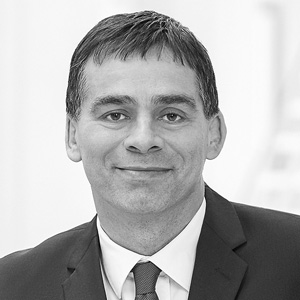
Industry 4.0 presents logistics, like many other sectors, with some entirely new challenges, but it also opens up immense opportunities. To remain competitive in this environment, it is essential to be fast and innovative. Recent years have shown that we are moving in the right direction with our “last mile” initiatives, but we must not …
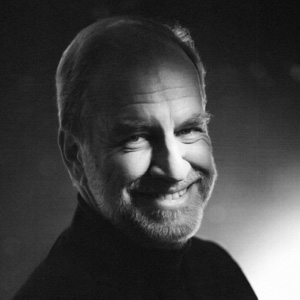
Digitalisation means neither euphoria nor the apocalypse. To a great extent, it is unimaginable. It cannot be compared with Gutenberg or television; nor with the Reformation or the commencement of the modern era; nor yet with the wave of democratisation after the First World War; or with the introduction of assembly line production. It is …

BlessU2 was first introduced in 2017 at the World Exhibition in Wittenberg to celebrate the 500th anniversary of the Reformation, as the world’s first blessing robot. In March 2019, the Artistic Director of Ars Electronica, Gerfried Stocker, caused a furore by announcing that people would rather rely for spiritual support on a robot than on …

Digitalisation in healthcare faces numerous challenges. Firstly, the rapid changes in products and services associated with e-health and telemedicine are unstoppable and will increasingly be demanded by patients. Secondly, because of the strict data protection guidelines, the healthcare industry in Germany is one of the least digitalised sectors in the country. What are the possible …
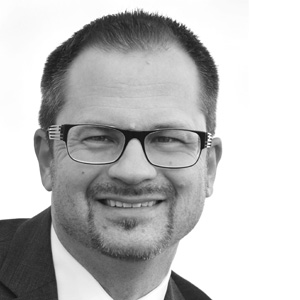
Increasing interconnection enormously increases the potential areas for attack. At the same time, dependency is increasing because systems are becoming ever more complex. Yet freedom from errors remains as remote a prospect as ever. This means that information security is a key element of digitalisation.

Asimo, my companion! When I am old, you will look after me. You will pass me my food, hand me drinks, organise my medication. Perhaps you will read to me, make me laugh. In the end you will wash me and apply cream and perfume. Unembarrassed, I shall let all this happen. Will I also …
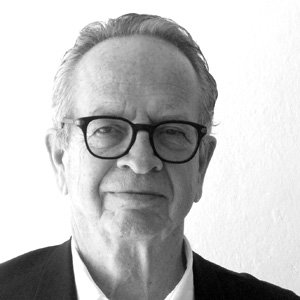
the children of the modern age, who have been able to develop as individuals and eventually discover themselves, will now have to undergo a radical rebuilding process if they are to survive in the digital modern age in future. they will have to shape their identities not as a unique individual but as a being …

The Fourth Industrial Revolution is already knocking on the door. We will question time and space and cities, not the companies, will be competing against other cities for the top talents. One third of the skills we have today, won’t be as important in 5 years from now. And empathy will be the most important …
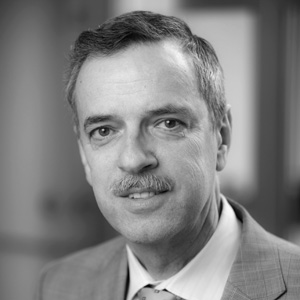
The JOANNEUM RESEARCH Forschungsgesellschaft mbH carries out top-level international research and plays a key role in technology and knowledge transfer, both nationally and internationally. Handling research, technology and innovation responsibly is a high priority. That is why JOANNEUM RESEARCH has been involved in the “Geist & Gegenwart” Whitsun Dialogues for many years. The theme of …

Individual mobility will continue to have an important place in future, even in a multimodal context. The digitalisation of the infrastructure is supporting the introduction of automated vehicles and enabling safer and more efficient mobility. Customers can use the data that is being produced to make informed mobility decisions.

Why do some companies find it so difficult to get to grips with the changes of the digital age, while others succeed? Why is Apple now worth more than GE, Wal-Mart, GM and McDonald’s combined? And the big question: why is there not a single company in Europe that can take on the GAFAs – …
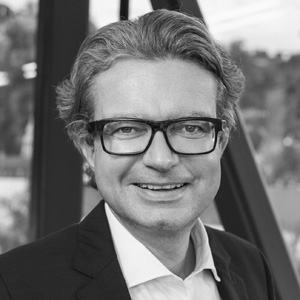
Making artificial intelligence – in whatever form – usable by society is a complex balancing act that involves utilising forward-looking development opportunities while also putting the necessary boundaries in place. We need to approach these issues with great sensitivity and in a spirit of open-mindedness.

We have shown with our research that a whole new kind of medicine could emerge based on health data. We can see, virtually in real time, which illnesses correlate with others, which therapies work and which preventive measures would be the most efficient for avoiding secondary conditions and the associated suffering and costs. We can …
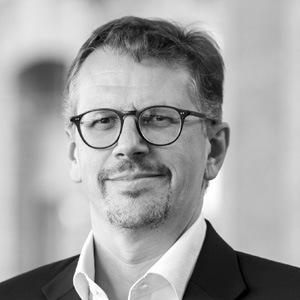
The security and availability of IT systems are key factors which must be taken into account right from the start of the planning process. However, unless you are an expert, assessing these criteria is difficult and often not at all transparent. Quality seals and certifications can help but themselves cause a series of new problems.

The digital transformation offers all kinds of new possibilities, opportunities and challenges for the whole of society – primarily of a social nature. We must therefore have a public debate to learn how to handle them responsibly, in order to bring about an improvement for as many people as possible in their everyday life, work …

Business Angel and founder of New Venture Scouting, a consulting firm that builds bridges between startups and established businesses. Expert in public administration, food production and trade and green tech. Previously in senior management positions at Agrana, REWE and the Austrian Federal Administration.

The digitalisation of Europe is advancing at enormous speed – and this is offering pharmaceutical companies the chance to communicate directly and frequently with individual patients for the first time. The development of intelligent medical products is helping to increase the quality of life and the life expectancy of patients, significantly and for the long …

Digital industrialisation is characterised by scaling, networking, directness and immediacy. Because of its historic responsibilities, Europe is able to contribute not only the digital-liberal economic order of the platform economy but also aspects of democracy and ethics, as well as their ecosocial implementation in society.
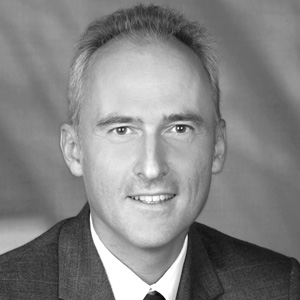
Innovations in information and communication technology (ICT) are, firstly, being reflected in new products and are therefore opening up entirely new markets. Secondly, ICT is enabling the product development process to be as efficient as possible in the light of the Industry 4.0 concept. In both areas, Graz and Styria as a whole have proved …

We live in a time when part of being successful is being able to convey your message skilfully, and being smart about balancing the traditional and the trendy – i.e. digital and analogue. Making digital services even better in future calls for constant innovation and endless curiosity about technological developments, without losing sight of the …

Buzzwords such as mass surveillance, big data and fake news hint at the key issues of freedom and security, self-determination and external control – of the individual and of political systems – that arise in connection with the impacts of the digital revolution on society and democracy, but without adequately capturing them.

Digitalisation now affects all areas of life. Data collection and the rapid availability of data are the backbone of the global economy and also of our private lives. Modern information technologies, and digital networking that is advancing in giant strides, offer tremendous convenience and many new opportunities. Artificial intelligence in the form of learning systems …

In what is now the eighth “Geist & Gegenwart” Whitsun Dialogue, we turn our attention to the prospects for Europe in a digital age. In Styria, research and development accounts for more than five percent of regional gross domestic product, making it one of the leading research regions in Europe. Our universities, research institutes and …

Digitalisation means: unknown levels of complexity; uncertainty about what we are and what other people are; new concepts of humanity; new ways of attributing meaning. Our previous concepts are in ruins and we have no idea about what kind of random heap of stones (or chips) we are now dealing with or how to live …
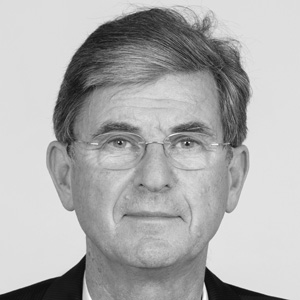
Digitalisation is also changing trust as one of the foundations of our society. With all the “deep fakes” and so on, can we still agree at all on what actually “is”? The vision is for artificial intelligence and digitalisation to make human intelligence more valuable than ever. Europe can (help) make that happen!

It is no secret that the games industry has been making more money than Hollywood for a long time. It must be our objective to strengthen this industry, and education and research in this field, here in Austria as well, and to take advantage of the potential for the technological cornerstones of this industry to …
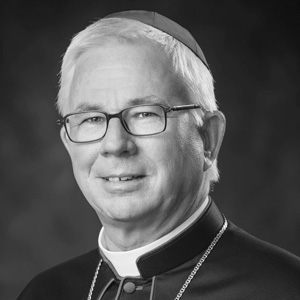
In my encounters with confirmation candidates, I repeatedly notice how much the world in which we live – and in particular the world in which young people live – has changed as a result of digitalisation. Partly – and this is undisputed – for the good: distances are overcome, information is available at the press …
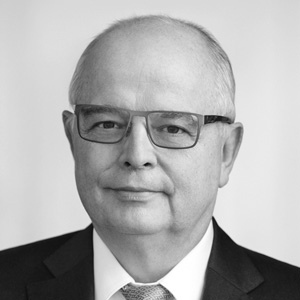
The implications of the digital transformation are having a disruptive effect on power relationships in global and regional competition. System boundaries in the market environment that have built up historically are being broken down. The basis for a successful digital transformation within a company is, firstly, to have an efficient skills network, and, secondly, to …
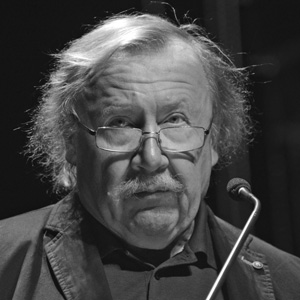
“During the 20th century, the filter of eternity which stabilised our world view for so long gradually fell away. And this is undoubtedly a genuinely modern phenomenon: the changes have accelerated so much that they become noticeable within our own lifetimes.” (Peter Sloterdijk “Die Sitten verwildern, die Gerechtigkeit ist obdachlos [Morals are running wild, justice …

We should be regulating new technologies at a time when they are not yet firmly embedded in our society and when we as a society can still help to influence them. We need legal instruments that are capable of coping with the multiple opportunities presented by new technologies and will at the same time enable …

Is there a future for analogue media? That is the wrong question. How necessary are they? When more and more people get their information exclusively from digital giants such as Facebook, when US President Trump publishes his “truth” as a Tweet, it is reassuring to know that printed material can be a relatively reliable source …
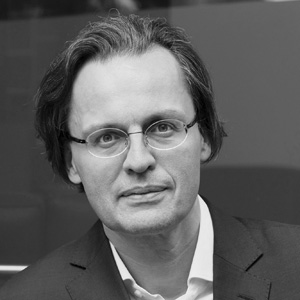
In an age when the authority of traditional journalism is vanishing, the shouting of the “lying press” is getting louder and news can be converted into a swirl of information confetti, everyone has become both a broadcaster and the gatekeeper of their own rights. And now the irate citizen, who previously raged in lonely isolation, …

We are in the middle of a digital revolution. To it we owe positive developments in almost all areas of life. Our everyday lives are constantly being transformed. Yet fear of technological progress is the worst advisor for us Europeans. Both in Austria and at European level, policy-makers are working on a digital Europe in …

In 2019, the former bishop’s residence of Seggau Castle is hosting “Geist & Gegenwart” for the eighth time, this year on the theme of “Das digitale Europa. Digital Europe”. This interdisciplinary forum in a European format takes place close to Austria’s borders with Italy, Slovenia and Hungary, and addresses questions relating to the boundaries between …
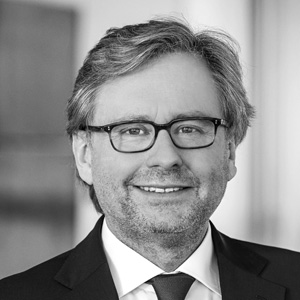
Naturally, the ORF (Austrian Broadcasting Corporation) must also change, from a traditional broadcaster to a platform company. However, to do so it needs different framework conditions, for example in relation to streaming, the cloud, IP and the use of blockchain technologies. The ORF must be allowed to use all of these. We are not only …

The growing use of technology and digitalisation in the healthcare industry has implications not only for the industry itself but also for doctors’ training. Doctors are taught too little, if anything at all, about artificial intelligence and big data. Yet this is urgently needed, because patients are increasingly challenging doctors on these issues. How fast …

The (social) web enables any user to become a potential publisher; the traditional gatekeepers have lost much of their reach and relevance. People often talk nowadays about the fragmentation of society. Whether this trend marks the end of democracy or just the start of a different kind of democracy is too little debated, or in …
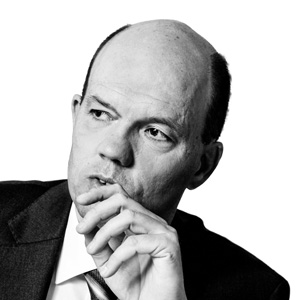
Borders in Europe have become relative. In fact not only in Europe but worldwide. As a result of digital media and digitalisation, Europe is in the world and the world is in Europe. This applies to quasi-real presence in the political, social, cultural, economic and medical arenas and elsewhere. The digital world has become a …

Artificial intelligence is driving the greatest change since the Industrial Revolution. Data is already being treated as “the new oil”. It is therefore all the more important for us to place this development in an ethical context, so that this aspect can be taken into account from the start. Policy-makers are aware of their great …
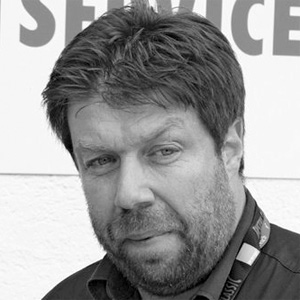
Mobility is changing, with automated driving for increased safety and convenience, possibilities for new in-vehicle activities and hybrid and electric vehicles to reduce emissions. These developments pose major challenges for development and marketing; at the end of the day, customers must buy the cars.

Despite the continuing truth of Moore’s Law that computing speeds double every two years, recent years have seen more evolution than revolution in computer science. Current expectations among scientists are that the relevance of Moore’s Law and this evolutionary phase are coming to an end. The methods of artificial intelligence and cyber-security will be implemented …

The digital world requires quality awareness and ethics all the more now that “fake news” and “alternative facts” have come sharply into focus in recent years. This is fortunate for people who put conscientiously and thoroughly researched material on the Internet, because they will enjoy greater awareness and stronger confirmation of the value of their …

“Problems of identity are more prevalent than ever before. All the differences between people that are woven together to create modern society are in turmoil. All the existing dichotomies have started to shift, everything is in a state of flux, but not in the way that Heraclitus meant. I harbour a suspicion that there must …
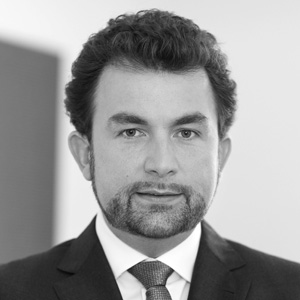
Fake news and hate speech are not new phenomena, but the Internet enables both to spread far more quickly and more widely than before. It is therefore important not only for Internet companies to fulfil their responsibilities but also for the foundations of digital media skills to be laid while children are still at nursery …

Peter SLOTERDIJK #01
“Problems of identity are more prevalent than ever before. All the differences ...

Bernhard PÖRKSEN
In an age when the authority of traditional journalism is vanishing, the shouting ...

Johanna PIRKER
It is no secret that the games industry has been making more money than Hollywood ...

Tim COLE
Why do some companies find it so difficult to get to grips with the changes of the ...

Sarah SPIEKERMANN-HOFF #01
Digital Europe only stands a chance if it charts its own course, if it builds its ...
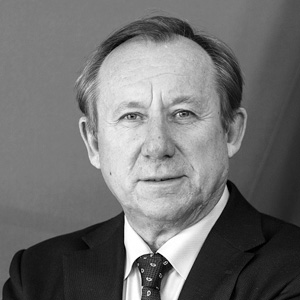
Wolfgang BURTSCHER
More than ever before, we depend on research and innovation and on modern technology. ...

Philipp AMANN
Security by design, privacy by design and resilience by design must be guiding principles ...

Werner WUTSCHER
Business Angel and founder of New Venture Scouting, a consulting firm that builds ...

Alexander WRABETZ #02
Naturally, the ORF (Austrian Broadcasting Corporation) must also change, from a traditional ...

Alexander WRABETZ #01
Digitalisation brings new challenges and opportunities for the media, too. If we ...

Stefan WINKLER
Artificial intelligence (AI) is currently suffering from exaggerated expectations. ...
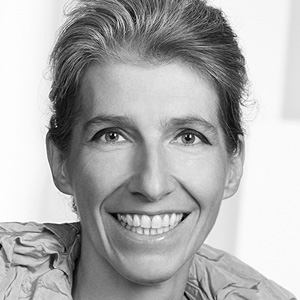
Christiane WENDEHORST #02
The widely-heard lament about discrimination by algorithms, biased training data ...

Christiane WENDEHORST #01
Rapid developments in the field of artificial intelligence (AI) are forcing us to ...

Ewald VERHOUNIG
Digitalisation is spurring on structural change and transforming our economic system ...

Günter van AALST #03
Digitalisation offers real solutions in the form of inter-sectoral network structures ...

Günter van AALST #02
Modern care structures require interdisciplinary, networked cooperation and the use ...

Günter van AALST #01
The self-sovereign patient expects that the digital healthcare world will deliver ...

Peter UMUNDUM
Industry 4.0 presents logistics, like many other sectors, with some entirely new ...

Charlotte STIX #02
Digitalisation and AI know no national borders. That is why it is important to take ...

Charlotte STIX #01
The concept of Europe entails addressing and preserving fundamental rights and values. ...
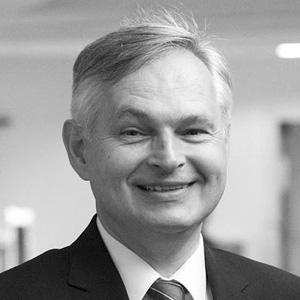
Gerhard STARK
Our understanding of eHealth is changing rapidly from the general digitisation of ...


Sarah SPIEKERMANN-HOFF #02
If we do not establish a positive concept of humanity and digital business models ...

Clemens Maria SCHUSTER #03
It has never been easier for creative practitioners, artists and cultural businesses ...

Clemens Maria SCHUSTER #02
Machines lack empathy, the ability to share the feelings of another – one of the ...

Clemens Maria SCHUSTER #01
Digital industrialisation is characterised by scaling, networking, directness and ...

Maximilian SCHUBERT
Fake news and hate speech are not new phenomena, but the Internet enables both to ...

Peter SCHÖGGL
Mobility is changing, with automated driving for increased safety and convenience, ...

Robert SCHISCHKA #02
The security and availability of IT systems are key factors which must be taken into ...

Robert SCHISCHKA #01
Digitalisation affects all areas of life – whether as a conscious decision or as ...
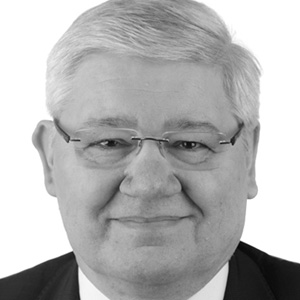
Wolfgang SCHINAGL #02
The most interesting hypothesis at the moment is that artificial consciousness is ...

Wolfgang SCHINAGL #01
Artificial intelligence is a marketing term. Artificial General Intelligence (AGI) ...
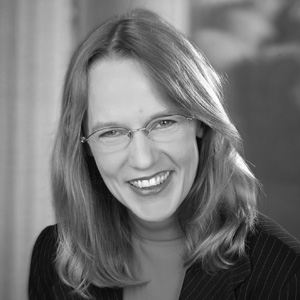
Katharina SCHERKE
Technology is never good or bad in itself – it all depends what people do with ...
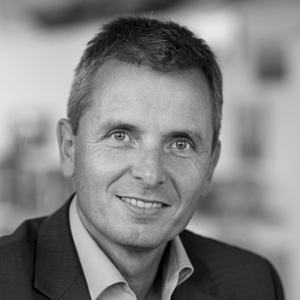
Friedrich SANTNER
Digital developments in the USA show Europe where the journey will take us.

Franz ROTTER
The implications of the digital transformation are having a disruptive effect on ...

Peter ROSEGGER
Digitalisation is leading to a critical rethink about the Neolithic Revolution. ...

Manfred PRISCHING #03
Digitalisation means: unknown levels of complexity; uncertainty about what we are ...

Manfred PRISCHING #02
Digitalisation means neither euphoria nor the apocalypse. To a great extent, it is ...

Manfred PRISCHING #01
What we have not yet understood is the sudden rupture in our history. It is not a ...

Jeremias PRASSL
Technology is changing the world of work – whether for better or worse depends ...

Klaus POIER
Buzzwords such as mass surveillance, big data and fake news hint at the key issues ...

Karl P. PFEIFFER #02
• eHealth can substantially improve the quality, efficiency and effectiveness of ...

Karl P. PFEIFFER #01
Big data and the methods of artificial intelligence make precision medicine and personalised ...

Elisabeth J. NÖSTLINGER-JOCHUM #03
The transition from specialised AI to a superintelligence is getting close. There ...

Elisabeth J. NÖSTLINGER-JOCHUM #02
Robo Nanny, Working Assistant, Geminoid robots are the assistants of tomorrow. Humans ...

Elisabeth J. NÖSTLINGER-JOCHUM #01
Asimo, my companion! When I am old, you will look after me. You will pass me my food, ...
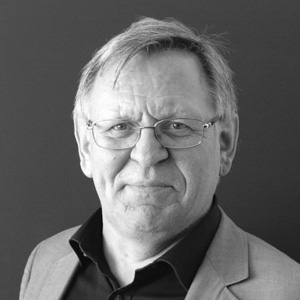
Leopold NEUHOLD #02
Digitalisation reinforces the tendency to confuse objectives and the means of achieving ...

Leopold NEUHOLD #01
Digitalisation is associated with indirectness. What implications does this indirectness ...

Johanna MUCKENHUBER
The digital transformation is happening. From the point of view of social sciences ...

Antonella MEI-POCHTLER #03
The life of every single individual is affected and changed by digitalisation. How ...

Antonella MEI-POCHTLER #02
The digital transformation offers all kinds of new possibilities, opportunities and ...

Antonella MEI-POCHTLER #01
In times of rapid change and ever-advancing digitalisation, it is all the more important ...

Thomas MAYER
All of Europe has undergone radical change in the last 30 years as a result of three ...

Norbert MAYER #03
Is there a future for analogue media? That is the wrong question. How necessary are ...

Norbert MAYER #02
Algorithms are practical. These magic formulae allow the digital industry to operate ...

Norbert MAYER #01
Specialists in the digital world tell billions of people the so-called truth: the ...

Heinz MAYER #03
Innovations in information and communication technology (ICT) are, firstly, being ...

Heinz MAYER #02
Despite the continuing truth of Moore’s Law that computing speeds double every ...

Heinz MAYER #01
Digitalisation now affects all areas of life. Data collection and the rapid availability ...

Stefan MANGARD
The huge potential of new digital technologies is inextricably linked with the subject ...

Markus MAIR #02
The digital world requires quality awareness and ethics all the more now that “fake ...

Markus MAIR #01
We live in a time when part of being successful is being able to convey your message ...

Werner LEODOLTER
Digitalisation is also changing trust as one of the foundations of our society. With ...

Christian LAGGER
Borders in Europe have become relative. In fact not only in Europe but worldwide. ...

Katharina LADEWIG #03
The growing use of technology and digitalisation in the healthcare industry has implications ...

Katharina LADEWIG #02
Digitalisation in healthcare also throws some central ethical issues into confusion. ...

Katharina LADEWIG #01
Digitalisation in healthcare faces numerous challenges. Firstly, the rapid changes ...

Richard KRIESCHE
the children of the modern age, who have been able to develop as individuals and ...

Gerhard KRACHLER #02
A vehicle’s total CO2 balance can only be objectively evaluated and regulated in ...

Gerhard KRACHLER #01
Digitalisation and the interlinking of supply and demand across different industries ...
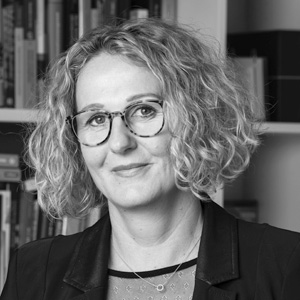
Sabine KÖSZEGI
AI systems have the potential to bring fundamental change to our lives in many ways. ...

Johannes G. KHINAST
The digitalisation of Europe is advancing at enormous speed – and this is offering ...

Michael HOFBAUR
In the future, robots and humans will increasingly work with and alongside one another. ...

Franz LACKNER
In my encounters with confirmation candidates, I repeatedly notice how much the world ...

Markus FALLENBÖCK
When it comes to digitalisation, Europe and Austria need to stop reacting from a ...

Martin ENGELBERG #03
We are in the middle of a digital revolution. To it we owe positive developments ...

Martin ENGELBERG #02
Digital change must take place; a digital Europe is our future. Notwithstanding all ...

Martin ENGELBERG #01
Artificial intelligence is driving the greatest change since the Industrial Revolution. ...

Iris EISENBERGER
We should be regulating new technologies at a time when they are not yet firmly embedded ...

Christiane DRUML
Digitalisation is the defining process of this decade and it needs to be the subject ...

Christopher DREXLER #02
eHealth can bring about substantial improvements in the quality of healthcare provision ...

Christopher DREXLER #01
Making artificial intelligence – in whatever form – usable by society is a complex ...

Christian DERLER
Increasing interconnection enormously increases the potential areas for attack. At ...

Judith DENKMAYR #02
The (social) web enables any user to become a potential publisher; the traditional ...

Judith DENKMAYER #01
The fear of possible manipulation in public debate should not tempt us to demand ...

Bernd DATLER
Individual mobility will continue to have an important place in future, even in a ...

Ingrid BRODNIG
Europe must develop its own vision for the digital era and answer the following questions: ...

Peter SLOTERDIJK #02
“During the 20th century, the filter of eternity which stabilised our world view ...

Wilhelm KRAUTWASCHL
In 2019, the former bishop’s residence of Seggau Castle is hosting “Geist & ...

Barbara EIBINGER-MIEDL
In what is now the eighth “Geist & Gegenwart” Whitsun Dialogue, we turn ...

Birgit KOLB
Digital technologies are a huge opportunity for humanity that we must use for the ...

Wolfgang REHNER
BlessU2 was first introduced in 2017 at the World Exhibition in Wittenberg to celebrate ...

Wolfgang PRIBYL
The JOANNEUM RESEARCH Forschungsgesellschaft mbH carries out top-level international ...

Josef PESSERL
Digitalisation should benefit workers in Styria and improve their working conditions. ...
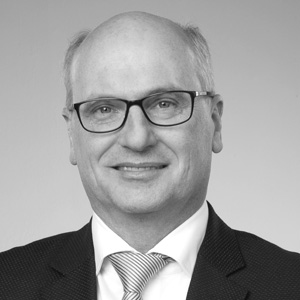
Wolfgang BARTOSCH
The advance of digitalisation is unstoppable and we must take care that the digital ...
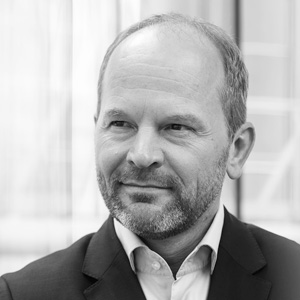
Andreas GERSTENMAYER
Digitalisation is essential for the industrial and economic development of Europe. ...
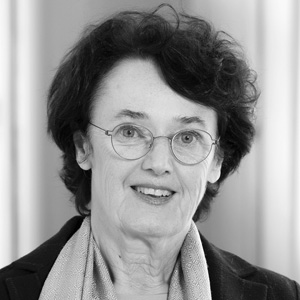
Ina WAGNER
Experience shows that the potential for automation is vastly overestimated and that ...

Stefan THURNER
We have shown with our research that a whole new kind of medicine could emerge based ...

Ana ALIBEGOVA #01
Shaping and re-shaping who and what we are today, we should never forget the big ...
